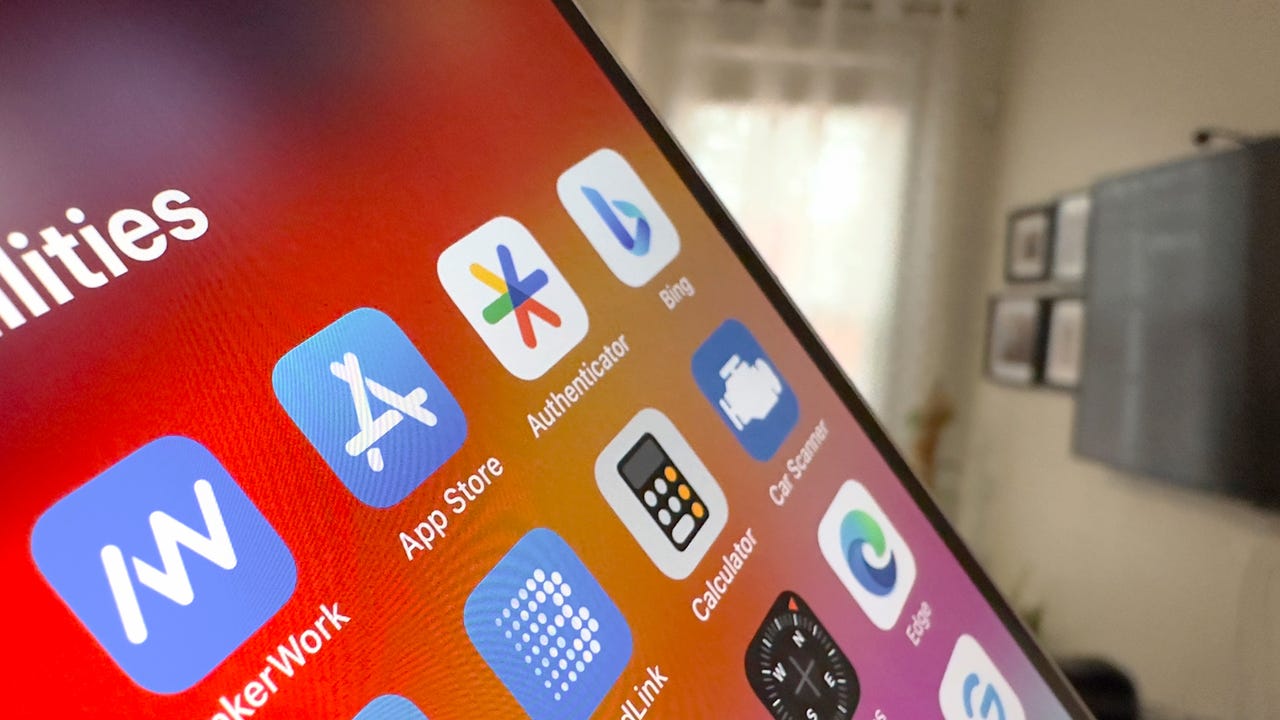
































For 15 years, the Apple App Store was the only way to download iOS apps.
Faced with the European Union's Digital Markets Act (DMA) going into effect in March, Apple has announced that it is now allowing app sideloading in the EU, effective with the beta version of iOS 17.4. Unsurprisingly, Apple isn't happy about its loss of control over iOS apps, saying DMA creates privacy and security risks for users.
"The changes we're announcing today comply with the Digital Markets Act's requirements in the European Union while helping to protect EU users from the unavoidable increased privacy and security threats this regulation brings," said Phil Schiller, Apple Fellow. "Our priority remains creating the best, most secure possible experience for our users in the EU and around the world."
Also: Update your iPhone and turn on Stolen Device Protection ASAP. Here's why
Although allowing sideloading, Apple will impose a "notarization" for all iOS apps, which the company describes as "a combination of automated checks and human review." The company is also requiring developers to complete app installation sheets, authorization to ensure they commit to Apple's security requirements, and malware protections that prevent sideloaded apps from launching if they're found to contain malware after being installed on a device.
The company is urging developers to continue distributing apps through its App Store rather than alternative methods, saying these solutions help mitigate some of the security risks created by the DMA but won't eliminate them.
"Developers can now learn about the new tools and terms available for alternative app distribution and alternative payment processing, new capabilities for alternative browser engines and contactless payments, and more. Importantly, developers can choose to remain on the same business terms in place today if they prefer," Schiller said.
Also: The 10 most downloaded free App Store apps of 2023
App sideloading is the process of installing applications obtained from sources other than the operating system's official app store. Apps downloaded from alternative distribution channels aren't necessarily synonymous with nefarious activities; however, they can open the user to security risks, as these apps bypass restrictions and policies set by the vendor's app store.
The EU introduced the DMA as a regulatory framework focused on leveling the competition in the technology market by setting out a list of regulations to ensure large tech companies, dubbed 'gatekeepers,' engage in fair practices. The DMA's objectives include increasing consumer choice, promoting fair competition, ensuring transparency, and encouraging interoperability.
Also: Google's Project IDX adds iOS, Android emulators, and more templates
Apple aims to balance DMA compliance and its current modus operandi, which grants it far more control over its operating system than its biggest competitor, Google. Android users can already sideload apps, and Google doesn't charge the exorbitant commission fees for downloaded apps in the Google Play Store that Apple does.
With this announcement, Apple is also rewriting the business terms for iOS apps in the EU, including reducing its commission of App Store purchases from 30% down to 10% -- or 17% for digital goods and services. It's giving developers the option to use the App Store's payment processing for an additional 3% fee or allowing them to use a payment service provider within their app or link to their website for no additional fee.
Also: Apple reportedly eyeing generative AI push and Siri overhaul for the iPhone
All apps will pay E0.50 for each first annual install per year over a one million threshold, regardless of whether they were sideloaded or downloaded from the App Store. This raises questions about implementation and monitoring. Though Apple wasn't entirely clear on how it plans to execute this strategy for sideloaded apps, one can assume it expects to do so through its notarization process.
Apple also announced changes to its App Store and Safari to comply with the DMA, including introducing over 600 new APIs, expanded app analytics, NFC payment changes, and more. The changes will roll out to all users in the 27 EU countries in March, with the general release of iOS 17.4.
 Hot Tags :
Tech
Hot Tags :
Tech